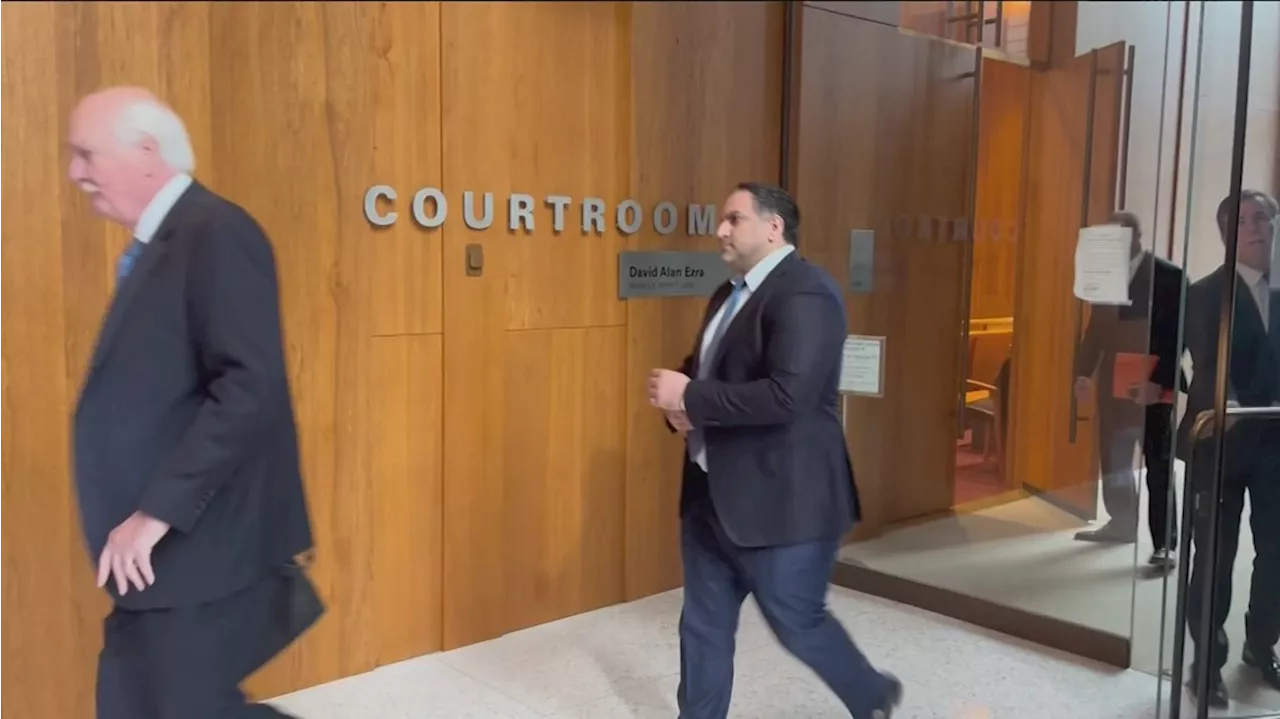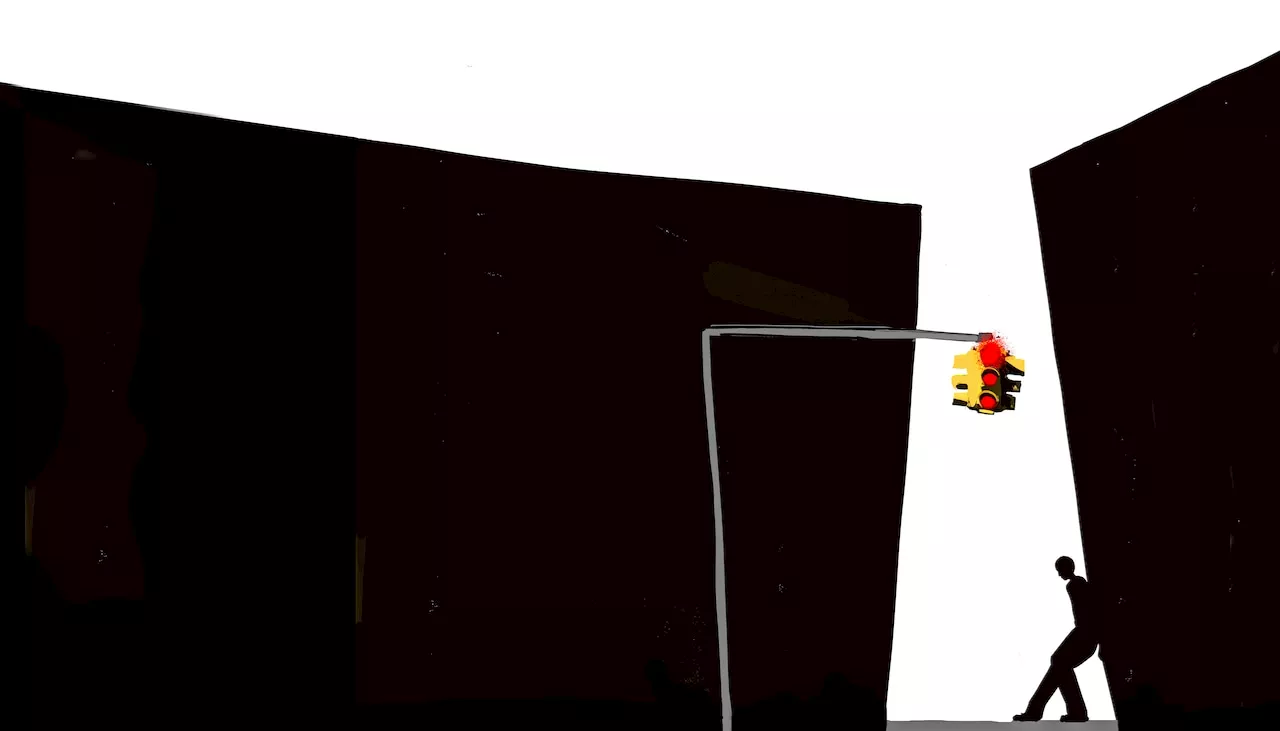“Delinquent: Our System, Our Kids” is a special series examining Cuyahoga County's juvenile justice system through the eyes of the kids who go through it.
Delinquent : Read all the stories from Week 2; mandatory bindovers have risen in Cuyahoga, but some Ohio legislators want to eliminate them Cuyahoga County transfers more youth to adult prison than any other county in Ohio. Sometimes that process, called bindover, is mandatory, based on a youth’s charges alone. Prosecutors decide the charges, which can dictate a youth’s fate – a juggling act between public safety and rehabilitation that sometimes feels out of balance.
“Ever since then, I just lost myself a little bit,” he recalls now. “That’s when everything started unraveling.” Efrain felt desperate to escape his pain. More than once, he remembers staring down the barrel of a gun, taunting the handler to pull the trigger. After the shooting, however, Ezekial pleaded to felonious assault and, in a separate case, aggravated robbery, a deal that sent him to prison for at least seven years. Efrain’s behavior and mental state deteriorated further, and this time, his father noticed. He speculated that his older son’s incarceration exacerbated Efrain’s feelings of abandonment from when their mother left them young.
The prosecutor might have also sought to indict Efrain as a Serious Youthful Offender, in which case he would have received a blended sentence. Efrain would serve the juvenile portion first, but an adult sentence could follow, if he were to reoffend during that period. For nearly a century, all bindover decisions were discretionary. It was up to a judge to consider the totality of a youth’s circumstances – their role in the alleged crime, their homelife, academic performance, prior court involvement and a psychological evaluation. Then, the judge would decide whether to keep them in the juvenile system or send them on to the adult system.
A child would also be subject to bindover if they come from a state whose laws require it, or if they’re convicted of a felony and have been bound over before. “Once an adult, always an adult,” according to the law. “He’s at a crossroads,” DiChiera told the judge. “He can be rehabilitated. There is hope in the future for this young man.”
Around that same time, Efrain’s house was shot up again. This time, police said the bullets went through the front door and windows. The sentence was the best-case scenario for Efrain, under the circumstances, but his attorney, DiChiera, still considers it a waste. The juvenile system can hold offenders until they’re 21, meaning Efrain could have served the same amount of time in youth lockup, he says.
He talked of seeking counseling for the first time and celebrated an opportunity to get his GED – he never would have finished high school if not for his incarceration, he said. He still wanted to apply for the military after his release, but he was also making plans to try barber school, if he’s not accepted.
“I’m sorry I haven’t been calling, I’ve just been down lately,” he wrote. “I’ve been thinking about going home and I’ve just been losing hope, you know…it just gets tiring.”The juvenile system extends until an offender’s 21st birthday, offering age-tailored treatments youths don't receive in adult prison. However, some juveniles sentenced to adult lockup are released before they turn 21, raising questions about why they were bound over in the first place.
“I was shocked,” Edward, from Cleveland’s Collinwood-Nottingham neighborhood, recalls now from an adult prison, where he’s serving a six- to eight-year sentencing. “I made a mistake when I was 16, and now it’s going to haunt me for the remainder of my life.” Of 259 youths transferred to the adult system between 2019 and 2022 – either through mandatory or discretionary bindover – 40, or 15%, had either no record or one prior case, according to a Plain Dealer/cleveland.com analysis. Bindover was mandatory for all but 13 of them.The pattern has long irked reform advocates, who say mandatory bindovers undermine justice and the reason why the juvenile system was created: to attempt rehabilitation first.
More than half of the juveniles who were bound over on their first or second charge between 2019 and 2022, were accused of non-homicide crimes, like aggravated robbery, aggravated burglary or rape, county bindover data shows, though nearly all of them involved a firearm.Two days after Sean’s 16th birthday, in 2020, he threw a 72-year-old motorist to the ground at gunpoint and sped off in his car before it crashed during a police pursuit. He had no prior criminal record.
Instead, the office pressed forward with the original charge, triggering a mandatory bindover, because Sean was 16 and the crime involved a gun.Up until then, Sean feels he had “a regular childhood, kind of sheltered,” growing up with six sisters in Broadway-Slavic Village. He assisted at his father’s cleaning business, took karate lessons and loved to cook.
Meanwhile her youngest, 14, started spiraling, seeking out surrogate brothers from rough crowds, she suspects. He’s since improved. First, Parnell and three others stole a gas station employee’s car at gunpoint on Cleveland’s west side. Days later, he was accused of being involved in a drive-by shooting, where a 19-year-old was struck in the leg.
“A lot of jobs I was going for haven’t been getting back with me,” he says. “I don’t know if it’s because of the background check or what.” When including youth offenders who are released sometime after turning 21 but before turning 22, the rate jumps to 29%. Youth sentenced as adults are also more likely to recidivate. As early as 2007, the U.S. Centers for Disease Control and Preventionthat youth who serve time in adult prison are 39% more likely to commit new felonies than peers who were deemed delinquent in similar crimes but kept in the juvenile system.
Prosecutors also argue against deciding on charges or bindover based on how much time an offender might spend in adult prison, because there’s no way to predict how cases will play out. Plea negotiations or a judge’s discretion can affect sentencing, prompting an offender to be released earlier than expected.Juvenile Judge Kristin Sweeney, in contrast, says she does factor potential adult time into her bindover decisions.
When he was 11, his mother’s fiancé was murdered, and Will began selling taffy on corners in Cleveland’s Mount Pleasant neighborhood to help support her. Soon, he was sucked into the street lifestyle, smoking pot and firing guns for fun. For some youths, like Will, binding them over might be the right approach. Perhaps it’s the only way to protect the public from a kid so aggressive, he had racked up nearly two dozen sets of charges by the time of his bindover, despite multiple opportunities at intervention. Or maybe it’s the only way to keep him from further contributing to the county’s juvenile crime rate or to keep a gun out of his hand, in a community that has become replete with guns.
Soon after leaving there, Will was arrested for armed robbery, accused of pointing a gun at a 10-year-old neighborhood kid, who was holding his sister’s car keys. Will took the keys and drove off in the sister’s car. This time a judge sentenced him to 18 months in youth prison, where a probation officer said he “constantly goes to war” with fellow teens over gang beefs.
Notably, violent crime in Cleveland is down this year. But whether juvenile crime is trending up or down is nuanced. It’s his job to protect public safety, he argues, and some juveniles have proven themselves a danger with their heinous actions.O’Malley’s tough-on-youth philosophy resonates with many – including, indirectly, Will himself.
“My mom didn’t know that her aggression made me a worse person,” he says. Then he changes his mind: “If I was treated softly, it would have maybe spoiled me.” I’m fightin’ demons at night and I hear cries when I sleep/Demons at night and that’s the devil after me Prosecutors can adjust charges or offer plea deals to negate bindover for some kids who they feel might still be rehabilitated by juvenile services. But if a crime involves murder, those chances are low – someone must be held accountable, and the public must be adequately protected, they say.
Lou blames himself. “Everybody is in jail because of me,” he says. “I couldn’t control my temper. That’s what haunts me.”Lou’s mother has told him he is not responsible for her imprisonment, that emotions just got out of hand. “We shouldn’t have ever gone back,” she acknowledges from prison. “We weren’t thinking. We were hurt.”
Later, Lou was caught with his mother’s gun, and he was charged with grand theft and illegal firearm possession. He was put on home detention as his case pended but cut his ankle monitor and ran away. Less than a month later, he shot the man dead.
@Exmeter Delinquent Bindover Cuyahoga County Juvenile Justice
United States Latest News, United States Headlines
Similar News:You can also read news stories similar to this one that we have collected from other news sources.
 Delinquent: Read all the stories from Week 1. Cuyahoga County sends more kids to adult prison than any other“Delinquent: Our System, Our Kids” is a special series examining Cuyahoga County's juvenile justice system through the eyes of the kids who go through it. We kicked off the series this week with five parts touching on why juvenile court was created and how it's working for youth today.
Delinquent: Read all the stories from Week 1. Cuyahoga County sends more kids to adult prison than any other“Delinquent: Our System, Our Kids” is a special series examining Cuyahoga County's juvenile justice system through the eyes of the kids who go through it. We kicked off the series this week with five parts touching on why juvenile court was created and how it's working for youth today.
Read more »
 Delinquent: High exposure to trauma might explain why so many Cuyahoga youth, like Nathan, commit serious cri“Delinquent: Our System, Our Kids” is a special series examining Cuyahoga County's juvenile justice system through the eyes of the kids who go through it. Research suggests that childhood trauma puts adolescents at greater risk for delinquent behavior. Cuyahoga youth seem especially vulnerable.
Delinquent: High exposure to trauma might explain why so many Cuyahoga youth, like Nathan, commit serious cri“Delinquent: Our System, Our Kids” is a special series examining Cuyahoga County's juvenile justice system through the eyes of the kids who go through it. Research suggests that childhood trauma puts adolescents at greater risk for delinquent behavior. Cuyahoga youth seem especially vulnerable.
Read more »
 A real estate investor has topped the list of Travis County delinquent tax payersThe lineup is out for this year's Austin City Limits Music Festival.
A real estate investor has topped the list of Travis County delinquent tax payersThe lineup is out for this year's Austin City Limits Music Festival.
Read more »
 The strange and terrible saga of SF’s incredible shrinking ethics delinquent listNot for the first time, San Francisco governance has borrowed a line from the 1978 film “Animal House”: You fucked up! You trusted us!”
The strange and terrible saga of SF’s incredible shrinking ethics delinquent listNot for the first time, San Francisco governance has borrowed a line from the 1978 film “Animal House”: You fucked up! You trusted us!”
Read more »
 Crunchyroll’s New Delinquent Anime Could Easily Be Spring 2024’s Best New SeriesCharacters from wind breaker anime stand on steps
Crunchyroll’s New Delinquent Anime Could Easily Be Spring 2024’s Best New SeriesCharacters from wind breaker anime stand on steps
Read more »
 Shonen Jump's New Delinquent Manga Is Nothing Like Tokyo Revengers (& That's Great)Tokyo-Revengers-Astro-Royale
Shonen Jump's New Delinquent Manga Is Nothing Like Tokyo Revengers (& That's Great)Tokyo-Revengers-Astro-Royale
Read more »
